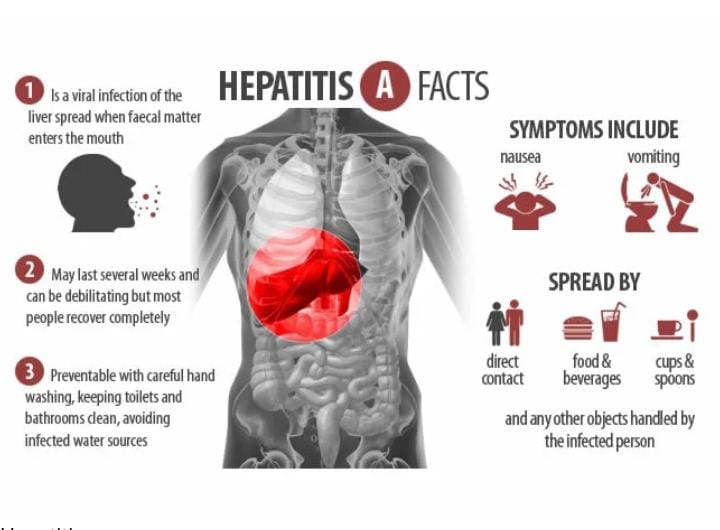The World Health Organisation Regional Director for Africa, Dr. Matshidiso Moeti said more than 91 million Africans are living with hepatitis.
She made this known in a press statement in commemoration of World Hepatitis Day.
World Hepatitis Day, observed on July 28 every year, aims to raise global awareness of hepatitis — a group of infectious diseases known as hepatitis A, B, C, D, and E — and encourage prevention, diagnosis, and treatment.
The theme for this year’s World Hepatitis Day, ‘One Life, One Liver’ seeks to emphasize the link between viral hepatitis infection and liver inflammation—that is, liver injury and damage—and the broader issues of liver health and primary health care.
Infection with the hepatitis B virus is preventable by vaccination, while doctors can now successfully treat hepatitis C, caused by the hepatitis C virus, with antiviral drugs.
Hepatitis causes the breakdown of the liver’s normal structure, which prevents the liver from working correctly.
Hepatitis B is commonly transmitted from mother to child during delivery, while Hepatitis B is spread through contact with blood or other body fluids during sex with an infected partner, unsafe injections, or exposure to sharp instruments.
Hepatitis C is spread through contact with the blood of an infected person by unscreened blood transfusions, sharing needles, and unsafe sexual practices that lead to direct exposure to blood.
Dr. Moeti said, “More than 91 million Africans are living with hepatitis. In 2019, an estimated 1.2 million new hepatitis infections and 125,000 hepatitis-related deaths occurred in the African Region. Deaths occur mostly among the young and productive segments of the population.
“WHO’s global hepatitis strategy, endorsed by all WHO Member States, and the Framework for an Integrated Multisectoral Response to TB, HIV, STIs, and Hepatitis in the WHO African Region aims to reduce new hepatitis infections by 90 per cent and deaths by 65 per cent by 2030.
“WHO supports regional and national efforts to eliminate viral hepatitis by 2030 by providing clear guidance for decentralized and simplified person-centered prevention, testing, and treatment of viral hepatitis, including eliminating hepatitis B through birth dose vaccination (the day of birth or the day after). A lot still needs to be done to reduce hepatitis-related deaths and infections.”
Dr. Moeti said despite the availability, of diagnostic tools and effective treatment, more than 90 per cent of people living with hepatitis in Africa do not receive the care they need, and less than 10 per cent of the population has access to testing and treatment.
She said this leads to progressive advanced liver disease, devastating financial burden, emotional distress, and stigma.
The regional director noted that testing and treatment, as a public health approach, remains the most neglected aspect of the response.
“The highest burden of hepatitis B infection in children below five years of age is seen in countries without hepatitis B vaccination at birth. Immunisation, thus, is an important component in the fight against hepatitis.”
She added that coverage for routine childhood vaccination against Hepatitis B in the region stands at 72 per cent, far below the global target of 90 per cent.
“As of 2022, 16 countries in the region provide a birth dose of the vaccine to all newborns, up from 11 in 2021. Let’s take advantage of available tools and interventions to ensure liver health for all persons. We must make services available through strong primary health care services increasingly funded through domestic resources.
“Testing and treatment interventions must be part of the essential package of health services delivered through integrated primary health care that addresses the needs of individuals of all ages (newborn, child, adolescent reproductive, and maternal health care).
“We must scale up hepatitis B immunization coverage to reach the globally agreed target of 90 per cent. Therefore, I urge all countries to work to introduce the Hepatitis birth dose,” she said.






Leave a Reply